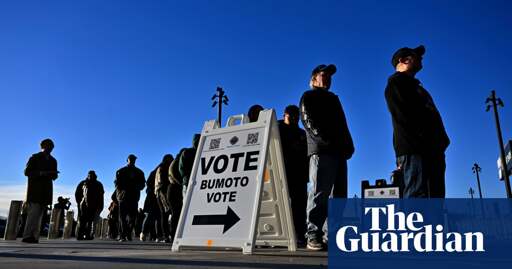The 2024 US presidential election had been widely characterized as one of the most consequential political contests in recent US history. Although turnout was high for a presidential election – almost matching the levels of 2020 – it is estimated that close to 90 million Americans, roughly 36% of the eligible voting age population, did not vote. This number is greater than the number of people who voted for either Donald Trump or Kamala Harris.
More than a month on from polling day, eligible US voters from across the country as well as other parts of the world got in touch with the Guardian to share why they did not vote.
Scores of people said they had not turned out as they felt their vote would not matter because of the electoral college system, since they lived in a safely blue or red state. This included a number of people who nonetheless had voted in the 2020 and 2016 elections.
While various previous Democratic voters said they had abstained this time due to the Harris campaign’s stance on Israel or for other policy reasons, a number of people in this camp said they would have voted for the vice-president had they lived in a swing state.



I thought you were done discussing it with me.
And yes, believing in Project 2025’s aims, which Trump just re-endorsed, is a self-fulfilling prophecy.
I noticed you never gave any sort of rational pathway for Trump to offer fair elections or accept their outcome. Is it because there isn’t one?
Don’t stick your head in the sand, oppose anything that threatens democracy, don’t just accept defeat.
Again, what is the rational pathway for Trump to offer fair elections or accept their outcome?
You know you can’t answer that question because you know there isn’t one.
And you still have this ludicrous idea in your head that the two options are “hope for a free and fair election” and “accept defeat.”